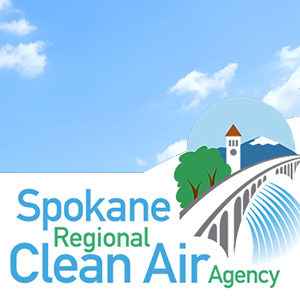Some of the most common threats and hazards in our area to be aware of are wildfires, power outages, winter storms, and floods. The more you know about the threats in the area, the better prepared you can be.
On April 10 and 11, SRHD and local preparedness and response partners participated in a national exercise called Tranquil Terminus. The exercise was designed to test federal and local response plans and capabilities around coordination, communication, treatment, and movement of multiple patients with Ebola Virus Disease. In the months leading up to the exercise many partner meetings were held. The planning group reviewed response plans and designed the exercise to ensure participants had the best learning opportunities possible, and that plans were tested adequately.

Monitor local air quality with Spokane Regional Clean Air Agency.